|
I'm absolutely thrilled that The New Southern Fugitives has published my story "Aces" and nominated it for the Pushcart Prize.
A story inspired this story. (Note, there are spoilers ahead, so read the story in the journal before continuing). My husband and I belonged to a group for newcomers to the area, in which we took turns hosting get-togethers. At ours, I asked a couple of icebreaker questions so that we could get to know each other better. One was the classic writing prompt: tell about the best gift you ever got. One man told the story of how he and his brother were given a single bicycle for Christmas one year. When asked whose bicycle it was, their parents told them to work it out for themselves. So they decided to play poker for it. That's the basic setup I took for this story, though of course the details and the outcome (and how the narrator brother won) are all mine. You might remember the pack of playing cards that was a writer gift last year. Every year, my writer's group gives holiday gifts referencing the recipient's work. The Bicycle playing cards referenced this story.
0 Comments
I'm very pleased to have my story "Two Sticks" published in Ellipsis Zine. One day when I was at water aerobics, an older woman told me that her husband had been very involved in the Boy Scouts his whole life. She mentioned that when they had parties, he'd demonstrate how to start a fire without matches. I thought that was a great scene for a story, and went home to work on one, keeping the idea of a man starting a fire as a party trick, but making up everything else about the couple. Of course, in order to write the story, I had to find out how exactly one starts a fire without matches. Fortunately for writers, this kind of research is made much easier by google and YouTube. As I got into the details of fire starting, I learned that the two sticks method, which I'd assumed was the only method, was in fact only one of many ways to start a fire. Looking up the others, I was instantly intrigued by the fire plow. I started watching videos, and after the first couple of minutes of the following video, writing about the fire plow became irresistible. The fire plow is still two sticks, just two very special sticks of disparate sizes, so I felt justified in keeping the title I'd originally written.
By the way, "Two Sticks" wasn't the first story inspired by water aerobics conversations; an different exchange with a different woman in a different class led to the genesis and title of "The Moon in Daytime." I'm very pleased to have my story "Angry Money" published in Dime Show Review. The journal also published my story "Two Turtledoves" a couple of years ago, and I was very happy to work with them again.
This story is another, like "After Waking," that I started, abandoned, and then finished later. I wrote an opening about a couple in a bar stealing a jacket, then I stopped. After a year or two, I found the opening and went back to the story, figuring out why they had no brakes on this particular evening. With my writing, I'm a pack rat, keeping the bits of stories and sometimes fashioning them into completed works years later. I don't know if other writers work this way, but I suspect they do. Henry James said "A writer is someone on whom nothing is lost." That's a high bar to set for observing the world. I fail often. And yet, by never throwing anything away, I superstitiously think I'll lose fewer of the observations I've made. And occasionally, I get a completed story out of it. Typehouse Literary Magazine has published my story "Meet Your Kid for Lunch" in their latest issue. You can order a print copy or read the pdf version (my story is on page 11).
Sometimes the origin of a story is mysterious. But this one is not. Like my story "Psychic Cleaners," this story was inspired by a sign. Driving home from working out one day, I saw the sign at the middle school displaying "meet your kid for lunch." Well, I thought. that would be quite a trick, as I don't have any kids. Then I thought. what if someone COULD walk into that middle school and meet the kid they never had? And so I wrote the story. Postcard Poems and Prose has published my story "Abandoned Bees" in the form of a beautiful postcard. Such a fun way to present a flash fiction!
I wrote in my blog post "Two Watches" about my little whiteboard I use to keep a list of story germs (I can't really call them ideas) to use when I need inspiration. In that post I wrote about putting headlines from the local paper on the board to use for future stories. The story published today was inspired by a headline about abandoned bees. What a great idea for a story, I thought. Did the beekeeper die, or simply lose interest? What happens when a beekeeper abandons a hive? The newspaper story, however, was not about an abandoned hive. In fact, the headline was misleading, since it was about a bee colony that was found in an old junked water heater. A beekeeper transported the bees to her property. So it was simply a wild colony, not the product of a feckless beekeeper. The only thing abandoned was the water heater. I decided I would write the story I wished it had been, about domesticated bees left without a beekeeper, becoming abandoned in both senses of the word. After thinking vaguely for years that I’d like to play the ukulele, this year I actually started, signing up for Ukulele Boot Camp. By the end, I could play “Melt with You,” which only has two chords. The class played other songs, but I couldn’t manage three chords. That’s right—I couldn’t even keep up with “The Pina Colada Song.”
Even though I’m clearly not a natural, I’ve kept at it. I’ve never played a stringed instrument and haven’t played any instrument since I gave up the trombone in high school. Even though the ukulele is an easy instrument, it’s hard for me. I cannot strum a pattern and sing and change chords concurrently. At most, I can do two out of three, and even then my chord changes come with long pauses while I reset my fingers. E minor takes me so long I often skip it. I can’t play a regular E chord at all—I’ve tried a few fingerings and cannot contort my hand to the correct position. For me, playing the ukulele is an exercise in humility. I have no cause for pride or arrogance when I play. And yet, I’m learning constantly. “Let It Be” is now my favorite song. It has four simple chords and I can play it credibly, but I also enjoy fumbling through Carole King’s “So Far Away,” which has a chord called Gbm7, which seems like the name of an obscure vitamin and has a fingering so awkward I have yet to execute it. Church has also given me a recent dose of humility. After years as a Christmas and Easter churchgoer, I’ve started going regularly again. The last time I did any Bible study was during junior high Confirmation, which I viewed as something to endure. While in a study session recently, I asked for a definition of “justification,” a term so central to my church’s theology that, after explaining, the pastor gently suggested I might want to review basic church teachings. I am now surrounded by people who have for years sought religious enlightenment and a more just world, while I am a novice. I’m grateful and humbled. However, approaching a task with humility gives the greatest opportunity for discovery. I am learning a lot from my fellow ukulele players and church colleagues, just as I became a better singer by joining a chorus whose members were better musicians than me. Humility is good because it opens you up to listening to others. It makes you recognize that you don’t have the answers. Humility is underrated. Pride, humility’s opposite, is overrated, especially in our culture. I’ve squandered opportunities because I thought that I already knew what someone was trying to teach me, or that I was too advanced to need instruction. I once attended a writing lecture by a famous author (I’m too embarrassed to give you her name). Her opening remarks seemed absurdly elementary to me. Later, when a classmate discussed the lecture, I realized I didn’t remember any of the information my classmate had gleaned. Thinking I was too advanced for the lesson, I didn’t listen closely, and so missed a learning opportunity. For a writer, pride is useless. Every time I sit down to write and think “I know how to write this story,” the story feels lifeless, if I even finish it. My best work has occurred when I felt overwhelmed and panicked because I had no idea how to accomplish what I set out to write. It’s humiliating to have been publishing stories and essays for 15 years and still be thinking “I’m not sure I can do this.” But humility means I’m open and learning, alive to the possibilities of creating something better than I’ve ever written before. A few months ago, I lost my watch. I habitually take it off and leave it wherever I am: on my desk, on the kitchen table, on the bedside table. Sometimes I use it as a bookmark. So, losing my watch is not uncommon. I lose it for a day or two and it turns up under some papers or on under the bed. But this time, it didn't turn up. After a week, I resigned myself and got a new watch. I've been buying the exact same watch for decades: a Timex easy reader in black and gold, with a light-up dial so I can read it in movie theaters. Because these watches are inexpensive and available in many drugstores, I easily replaced my watch and wore it about a week before my husband found the old watch in the sofa cushions. So now I have two watches. At first I was miffed at myself. What a waste! But soon, I found I loved having two watches. I no longer run around the house trying to find my watch--one of them is always sitting on the bedside table or desk. What a time-saver! I now have a watch close at hand when I need one.
In my writing life, I always have ideas close at hand when I need them. On my desk sits a small whiteboard where I list story and essay ideas. Sometimes I write down references to anecdotes people tell me--for example, a couple of years ago, a friend told me about finding a bag of books on her doorstep with a note in a language she didn't recognize. Clearly, someone had put the bag on the wrong doorstep. I thought that might make a good start to a story, though I haven't used it yet. Other ideas are headlines I've read in the newspaper or online. I just had a flash fiction accepted that was based on one of those headlines: "Car Fire at Car Wash." Sometimes the list includes a place, or something odd I've seen, like the ballet slipper at the Sutro Baths I talked about in my post about location visits in San Francisco. So, if I sit down in the morning, ready to write but with no ideas, I look over at the whiteboard and find an idea on the board that appeals to me. What a time-saver! In fact, that's what I did this morning, and now I can erase "Two watches (blog)" from the whiteboard. Fortunately, I have this morning's headline to replace it with: "Couple caught on camera helping child steal giant unicorn." Recently, my husband and I got a new kitchen table. We moved almost two years ago into a house where everything was neutral--brown carpet, beige walls, brown and grey flooring, grey kitchen cabinets. I love color, so it's been hard for me to adjust, although I must admit that that neutral walls make a good backdrop for paintings. Still, I miss the pop of color. When we went looking for a new table, I wanted something bright to liven up the place. We settled on a tile table full of greens and blues and yellows. Though we had set out to get a small rectangular table, I loved the contrast of square tiles with the round shape, so we ordered a round table. When it was delivered and sitting in our dining nook, I thought: "That reminds me of Grandma's table." Grandma Hillesland was a folk artist who painted wild flowers on her furniture. It probably came out of the tradition of Scandinavian rosemaling, though Grandma's style was unique. Here's a rocking chair she painted: Perhaps her greatest achievement, though, was her kitchen. I'm sorry I don't have any pictures of it. She painted flowers on the doors of all her cabinets, with little added flower frills on the edges between cupboards. The big round table had a sunflower in the middle and a border of flowers around the edge. I remember the table itself as a grayish white, a nice neutral background for all the colored flowers. To walk into her kitchen was to enter a cheerful imaginary garden, an especially welcome sight on a gray day in Washington state.
I think the image of a colorful round table stayed with me subconsciously as I shopped, connected to childhood vacations and the special comfort of being at Grandma's house. As a writer, I believe in the subconscious. I write stories or images and think "Where did that come from?" Often I have no idea. I've written several blog posts about the inspirations for stories. For example, I blogged about how seeing an ineptly hidden avocado led to my story "Dear Squirrel, and reading about someone knitting stars led to my story "Casting Off." But of course, that's only the genesis of the story, what poet Richard Hugo calls the "triggering subject." It's a mystery, even to me, how I get from seeing an avocado on my porch to writing a story about a woman who reveals her plans to burn down her ex's house in messages to a squirrel. It's the subconscious, putting disparate things together without my conscious mind. Part of a writer's job is to let the subconscious mind work. Sometimes I get a good story out my subconscious. Other times I get a colorful table. I have a pretty common first name, which has two common spellings: Ann and Anne. According to the site Nameberry, the two spellings trade popularity, with Ann more common in the past and Anne edging it out more recently. By the year 2000, Anne was more popular than Ann by almost 200 spots on the most common names list. Still, they were both in the top 500 US baby names. Because both spellings are so ubiquitous, people often use the wrong spelling for my name. I once wrote an essay about my name, "They Call Me Lucky," in which I made fun of the Anne spelling, describing it as a "superfluous affectation, like “Ye Olde” in a shop name." Similarly, the most famous fictional Anne, Anne of Green Gables, says, "A-n-n looks dreadful, but A-n-n-e looks so much more distinguished." The truth is, its not that big of a difference. When I was younger, it used to bother me when people misspelled my name, especially the childhood Christmas that a relative's handwriting of "Anne" was mistake for "Arne," my brother's name, and he got to open my gift. (One year the reverse happened and I opened a package of boys' underwear.) However, now I know it's an easy mistake, and I expect it. When I was planning my website, I purchased both annhilllesland.com and annehillesland.com, knowing that that half of the people looking me up would spell my name Anne. Still, I do find the number of people who misspell my name curious. The other day I received an email which started "Dear Ann" but referred to me as "Anne" in the body. In many cases, the misspelling occurs in a reply to a Facebook post or email of mine, where the correct spelling was right in front of the writer. So what gives? After thinking it over, I've decided that people misspell my name because they think they already know how to spell it. Very few people misspell my last name, which is much more complicated. When I teach creative writing, I tell my students that good writers are observant. I often give them the homework assignment to keep a journal of things they've noticed that sparked their interest. Of course, as soon as I assign them the task, I go off and try it myself, and instantly realize how unobservant I am. I'm always amazed at the things I notice, even in familiar locations. A spider has built a web in the corner. The nightlight in the bathroom is shaped like a miniature blender: OK, maybe I'm the only one who thinks that. I don't usually notice these things because I think I already know what my familiar surroundings look like. It's easy to go on vacation to a foreign country and be amazed at the decorative manhole covers. But have I ever looked at the manhole covers in my own neighborhood? Prague's cover is spectacular, of course, but even my local one is surprisingly beautiful, and nothing like the mental image I would have supplied, thinking I already knew what it looked like. I have a boundless ability to overlook things that are right in front of me. I need to keep learning that fact, and keep fighting against that tendancy. Because in the end, I'm as likely as anyone to mistakenly think I already know how to spell a name, or describe the world.
When the Literary Orphans editor accepted my story "The Pines," the editor said it was "very unique." The piece was unusual for me, because my initial impulse was about form, not story or character. I thought about writing a story told both from the present and and past tense to express how difficult it can be to break free from a traumatic event. The past is still present, and you can get trapped in the past, especially if you are blaming yourself. You're caught in a loop. I don't write a lot of pieces with experimental forms, but I have published a few before, such as "My Route" and "Dear Squirrel," which both appeared in Corium. Another example is "The Moon in Daytime," which appeared in Wilderness House Literary Review. "The Pines" is my second story to appear in Literary Orphans. The first, "Just So You Know," also had a slightly unusual form, as it was spoken directly to another character. |
Author
Ann Hillesland writes fiction and essays. Her work has appeared in many literary journals, including Fourth Genre, Bayou, The Laurel Review, and Sou’wester. Categories
All
Archives
February 2024
© Ann Hillesland 2015-2017. Unauthorized use and/or duplication of this material without express and written permission from this site’s author is strictly prohibited. Excerpts and links may be used, provided that full and clear credit is given to Ann Hillesland with specific direction to the original content.
|
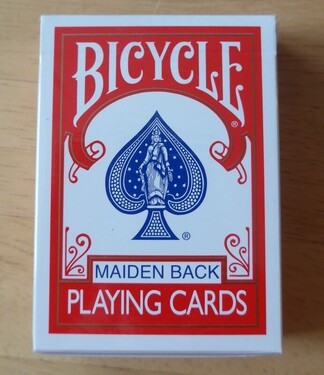
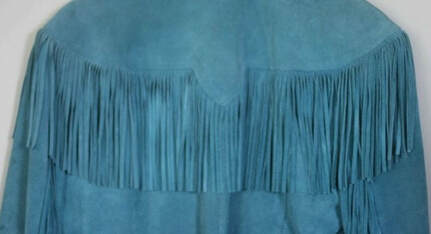
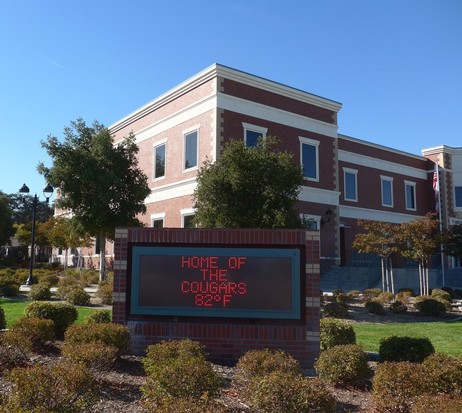
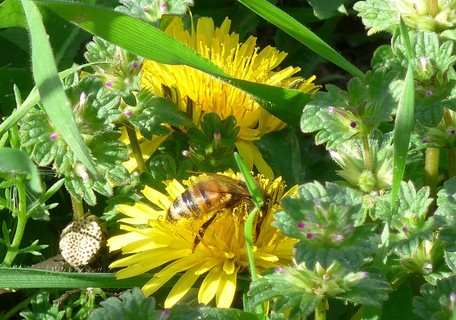
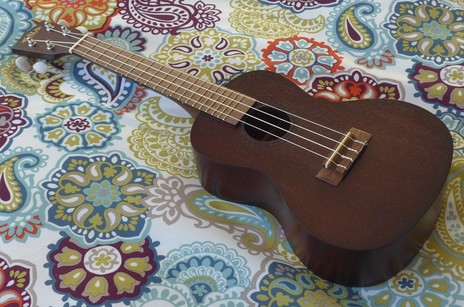
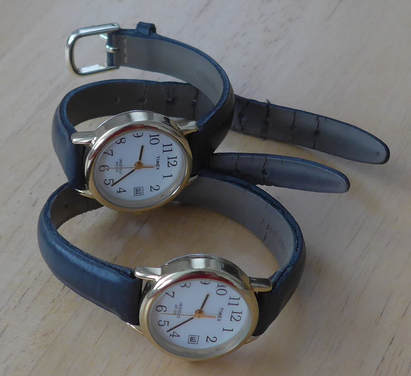
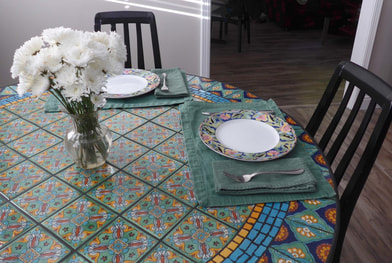
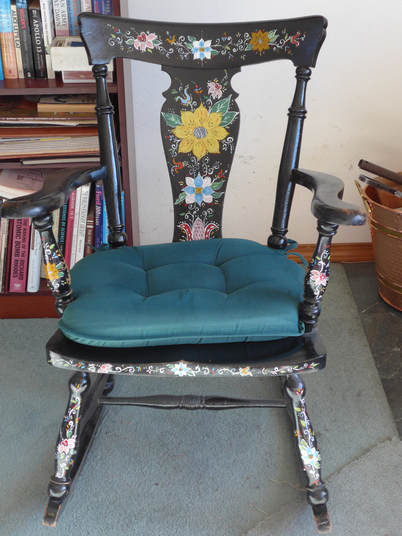
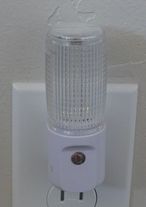

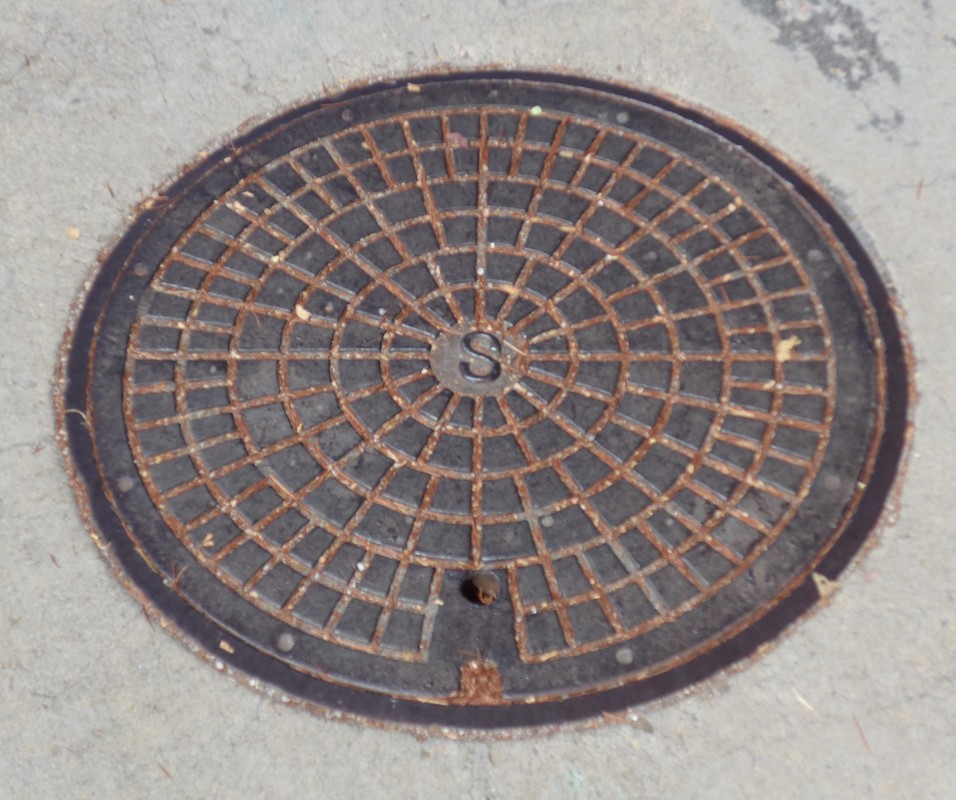
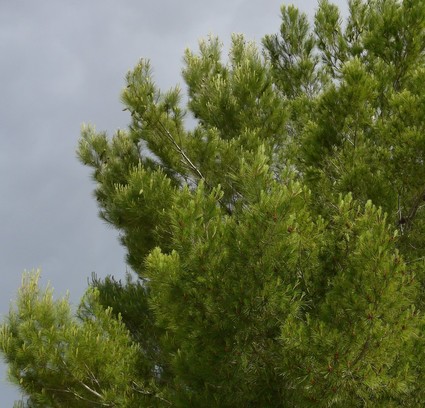
 RSS Feed
RSS Feed